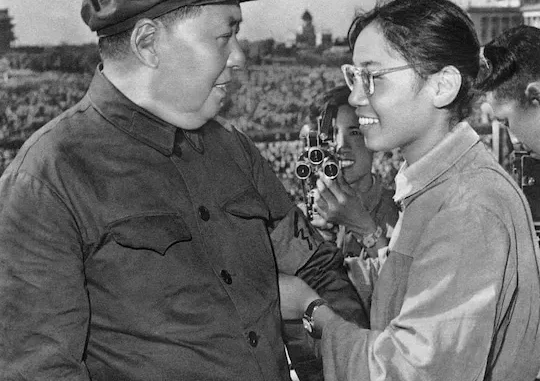
She was held accountable for a notorious 1966 killing at her Beijing high school as a militant Red Guards student leader. She expressed regret for not intervening to stop the violence but denied being a part of it.
The youthful face of the Cultural Revolution, Song Binbin passed away on September 16 at the age of 77. During this deadly ten-year campaign, Chinese leader Mao Zedong prosecuted those he believed to be Communist Party opponents in order to maintain his hold on power.
It ended only after Mao’s death ten years later, but according to some estimations, the unrest claimed the lives of close to 3 million people. It started in 1966. The catalyst for one of the most infamous and early murders was Ms. Song, a 19-year-old student leader of the Red Guards, a militant youth organization that attacked teachers and school officials who were thought to be too close to the Communist Party. Ms. Song was the daughter of the Communist elite.
Bian Zhongyun was a deputy principal and the daughter of a banker. On August 5, 1966, a gang of students at her all-girls school, which was affiliated with Beijing Normal University, beat and killed her. Subsequently, Ms. Song stated that she attempted to stop the attacks and denied any involvement in the violence. She did, however, admit that she had been at the vanguard of student protests against Bian, having written big-character posters, or political posters, that introduced the Cultural Revolution into her high school’s hallways.
Journalist Tania Branigan noted that the teens who killed Bian Zhongyun were “not wild as much as well-drilled” in her 2023 book “Red Memory:
Days before Bian was killed, pupils at Ms. Song’s school trashed her home, according to Branigan, a former Guardian reporter in China. They left behind hateful placards that said, “Carry on running roughshod over the workers, and we’ll whip your dog hide, rip out your dog heart, lop off your dog head,” and they burnt books and pulled up flooring.
Bian was made to clean the school restroom on the day of her death, and one of the students gave her the order to drink mop water. She was also beaten with boards embedded with nails. As several of the students drifted out to get ice pops, Branigan writes, she was carried outside and left to die in the heat.
A portrait of Ms. Song and Mao was taken near the Gate of Heavenly Peace, which has a view of Tiananmen Square, less than two weeks later. She was wearing a military uniform and glasses, and her dark hair was tied back in two little bunches. She grinned and gave Mao her red armband, tying it around his sleeve.
Watching from the square were one million Red Guards. Newspapers featured a picture of Ms. Song with Mao, which contributed to her rise to fame in China, so many who were unable to attend the demonstration were informed about it. According to an article under Ms. Song’s name in the People’s Daily, she changed her name from Binbin—roughly translating to “refined and courteous”—to Yaowu, which means “be militant,” after meeting Mao.
Subsequently, Ms. Song claimed in the 2007 documentary “Though I Am Gone” that she “was always opposed to violence” and that she never changed her name.
Red August, a series of politically motivated attacks in Beijing, began with Bian’s death. Party estimates from 1980 stated that Red Guards and their sympathizers killed close to 1,800 individuals between August and September.

Leave a Reply